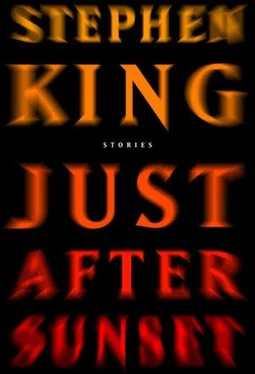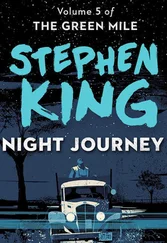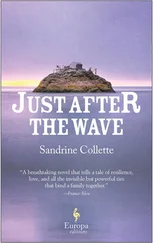Stephen King - Just After Sunset
Здесь есть возможность читать онлайн «Stephen King - Just After Sunset» весь текст электронной книги совершенно бесплатно (целиком полную версию без сокращений). В некоторых случаях можно слушать аудио, скачать через торрент в формате fb2 и присутствует краткое содержание. Город: New York, Год выпуска: 2009, ISBN: 2009, Издательство: SCRIBNER, Жанр: Ужасы и Мистика, на английском языке. Описание произведения, (предисловие) а так же отзывы посетителей доступны на портале библиотеки ЛибКат.
- Название:Just After Sunset
- Автор:
- Издательство:SCRIBNER
- Жанр:
- Год:2009
- Город:New York
- ISBN:978-1-4391-2548-9
- Рейтинг книги:5 / 5. Голосов: 1
-
Избранное:Добавить в избранное
- Отзывы:
-
Ваша оценка:
- 100
- 1
- 2
- 3
- 4
- 5
Just After Sunset: краткое содержание, описание и аннотация
Предлагаем к чтению аннотацию, описание, краткое содержание или предисловие (зависит от того, что написал сам автор книги «Just After Sunset»). Если вы не нашли необходимую информацию о книге — напишите в комментариях, мы постараемся отыскать её.
Just After Sunset — читать онлайн бесплатно полную книгу (весь текст) целиком
Ниже представлен текст книги, разбитый по страницам. Система сохранения места последней прочитанной страницы, позволяет с удобством читать онлайн бесплатно книгу «Just After Sunset», без необходимости каждый раз заново искать на чём Вы остановились. Поставьте закладку, и сможете в любой момент перейти на страницу, на которой закончили чтение.
Интервал:
Закладка:
He decided it went to Herkimer, which was a small town up by the Canadian border. He found a skinny and unmarked blue line on the roadmap of upstate New York that rambled there all the way from Poughkeepsie, which was south of the state capital. Two, maybe three hundred miles. He got a more detailed plat map of upstate New York and thumbtacked the square where this road began on the wall beside his hasty…his hasty what-would-you-call-it? Mural wasn’t right. He settled on “projection.”
And that day when he mounted the stationary bike, he imagined that Poughkeepsie was behind him, not the stored television from 2-G, the stack of trunks from 3-F, the tarped dirt-bike from 4-A, but Po’-town. Ahead of him stretched the country road, just a blue squiggle to Monsieur Rand McNally, but the Old Rhinebeck Road according to the more detailed plat map. He zeroed the odometer on the bike, fixed his eyes firmly on the dirt that started where the concrete floor met the wall, and thought: It’s really the road to good health. If you keep that somewhere in the back of your mind, you won’t have to wonder if maybe a few of your screws got loose since Trudy died.
But his heart was beating a little too fast (as if he’d already started pedaling), and he felt the way he supposed most people did before setting out on a trip to a new place, where one might encounter new people and even new adventures. There was a can-holder above the stationary bike’s rudimentary control panel, and into this he’d slipped a can of Red Bull, which purported to be a power drink. He was wearing an old Oxford shirt over his exercise shorts, because it had a pocket. Into this he’d placed two oatmeal-raisin cookies. Oatmeal and raisins were both supposed to be lipid-scrubbers.
And, speaking of them, The Lipid Company was gone for the day. Oh, they were still on duty in the painting upstairs — the useless, marketless painting that was so unlike him — but down here they’d piled back into Freddy’s Dodge, had headed back to…to…
“Back to Poughkeepsie,” he said. “They’re listening to Kateem on WPDH and drinking beers out of paper bags. Today they…what did you do today, boys?”
Put in a couple of culverts, a voice whispered. Spring runoff damn near washed the road out near Priceville. Then we knocked off early.
Good. That was good. He wouldn’t have to dismount his bike and walk around the washouts.
Richard Sifkitz fixed his eyes on the wall and began to pedal.
III. On the Road to Herkimer
That was in the fall of 2002, a year after the Twin Towers had fallen into the streets of the Financial District, and life in New York City was returning to a slightly paranoid version of normal…except in New York, slightly paranoid was normal.
Richard Sifkitz had never felt saner or happier. His life fell into an orderly four-part harmony. In the morning he worked on whatever assignment was currently paying for his room and board, and there were more of these than ever, it seemed. The economy stank, all the newspapers said so, but for Richard Sifkitz, Freelance Commercial Artist, the economy was good.
He still ate lunch at Dugan’s on the next block, but now usually a salad instead of a greasy double cheeseburger, and in the afternoon he worked on a new picture for himself: to begin with, a more detailed version of the projection on the wall of the basement alcove. The picture of Berkowitz and his crew had been set aside and covered with an old piece of sheet. He was done with it. Now he wanted a better image of what served him well enough downstairs, which was the road to Herkimer with the work-crew gone. And why shouldn’t they be gone? Wasn’t he maintaining the road himself these days? He was, and doing a damned good job. He’d gone back to Brady in late October to have his cholesterol re-tested, and the number this time had been written in black instead of red: 179. Brady had been more than respectful; he’d actually been a little jealous.
“This is better than mine,” he said. “You really took it to heart, didn’t you?”
“I guess I did,” Sifkitz agreed.
“And that potbelly of yours is almost gone. Been working out?”
“As much as I can,” Sifkitz agreed, and said no more on the subject. By then his workouts had gotten odd. Some people would consider them odd, anyway.
“Well,” said Brady, “if you got it, flaunt it. That’s my advice.”
Sifkitz smiled at this, but it wasn’t advice he took to heart.
His evenings — the fourth part of an Ordinary Sifkitz Day — he spent either watching TV or reading a book, usually sipping a tomato juice or a V-8 instead of a beer, feeling tired but contented. He was going to bed an hour earlier, too, and the extra rest agreed with him.
The heart of his days was part three, from four until six. Those were the two hours he spent on his stationary bike, riding the blue squiggle between Poughkeepsie and Herkimer. On the plat maps, it changed from the Old Rhinebeck Road to the Cascade Falls Road to the Woods Road; for awhile, north of Penniston, it was even the Dump Road. He could remember how, back at the beginning, even fifteen minutes on the stationary bike had seemed like an eternity. Now he sometimes had to force himself to quit after two hours. He finally got an alarm clock and started setting it for six P.M. The thing’s aggressive bray was just about enough to…well…
It was just enough to wake him up.
Sifkitz found it hard to believe that he was falling asleep down in the alcove while riding the stationary bike at a steady fifteen miles per hour, but he didn’t like the alternative, which was to think that he had gone a little crazy on the road to Herkimer. Or in his SoHo basement, if you liked that better. That he was having delusions.
One night while channel-surfing, he came across a program about hypnosis on A&E. The fellow being interviewed, a hypnotist who styled himself Joe Saturn, was saying that everyone practiced self-hypnosis every day. We used it to enter a work-oriented frame of mind in the morning; we used it to help us “get into the story” when reading novels or watching movies; we used it to get to sleep at night. This last was Joe Saturn’s favorite example, and he talked at length about the patterns “successful sleepers” followed every night: checking the locks on the doors and windows, maybe, drawing a glass of water, maybe saying a little prayer or indulging in a spot of meditation. He likened these to the passes a hypnotist makes in front of his subject, and to his line of patter — counting back from ten to zero, for instance, or assuring the subject that he or she was “getting very sleepy.” Sifkitz seized on this gratefully, deciding on the spot that he was spending his daily two hours on the stationary bike in a state of light to medium hypnosis.
Because, by the third week in front of the wall-projection, he was no longer spending those two hours in the basement alcove. By the third week, he was actually spending them on the road to Herkimer.
He would pedal contentedly enough along the packed dirt track that wound through the forest, smelling the odor of pine, hearing the cries of the crows or the crackle of leaves when he rolled through occasional drifts of them. The stationary bike became the three-speed Raleigh he’d owned as a twelve-year-old in suburban Manchester, New Hampshire. By no means the only bike he’d had before getting his driver’s license at seventeen, but inarguably the best bike. The plastic cup-holder became a clumsily made but effective hand-welded ring of metal jutting over the bike-basket, and instead of Red Bull it contained a can of Lipton iced tea. Unsweetened.
On the road to Herkimer, it was always late October and just an hour before sunset. Although he rode two hours (both the alarm clock and the stationary bike’s odometer confirmed this each time he finished), the sun never changed its position; it always laid the same long shadows across the dirt road and flickered at him through the trees from the same quadrant of the sky as he traveled along with the manufactured wind of his passage blowing the hair back from his brow.
Читать дальшеИнтервал:
Закладка:
Похожие книги на «Just After Sunset»
Представляем Вашему вниманию похожие книги на «Just After Sunset» списком для выбора. Мы отобрали схожую по названию и смыслу литературу в надежде предоставить читателям больше вариантов отыскать новые, интересные, ещё непрочитанные произведения.
Обсуждение, отзывы о книге «Just After Sunset» и просто собственные мнения читателей. Оставьте ваши комментарии, напишите, что Вы думаете о произведении, его смысле или главных героях. Укажите что конкретно понравилось, а что нет, и почему Вы так считаете.












